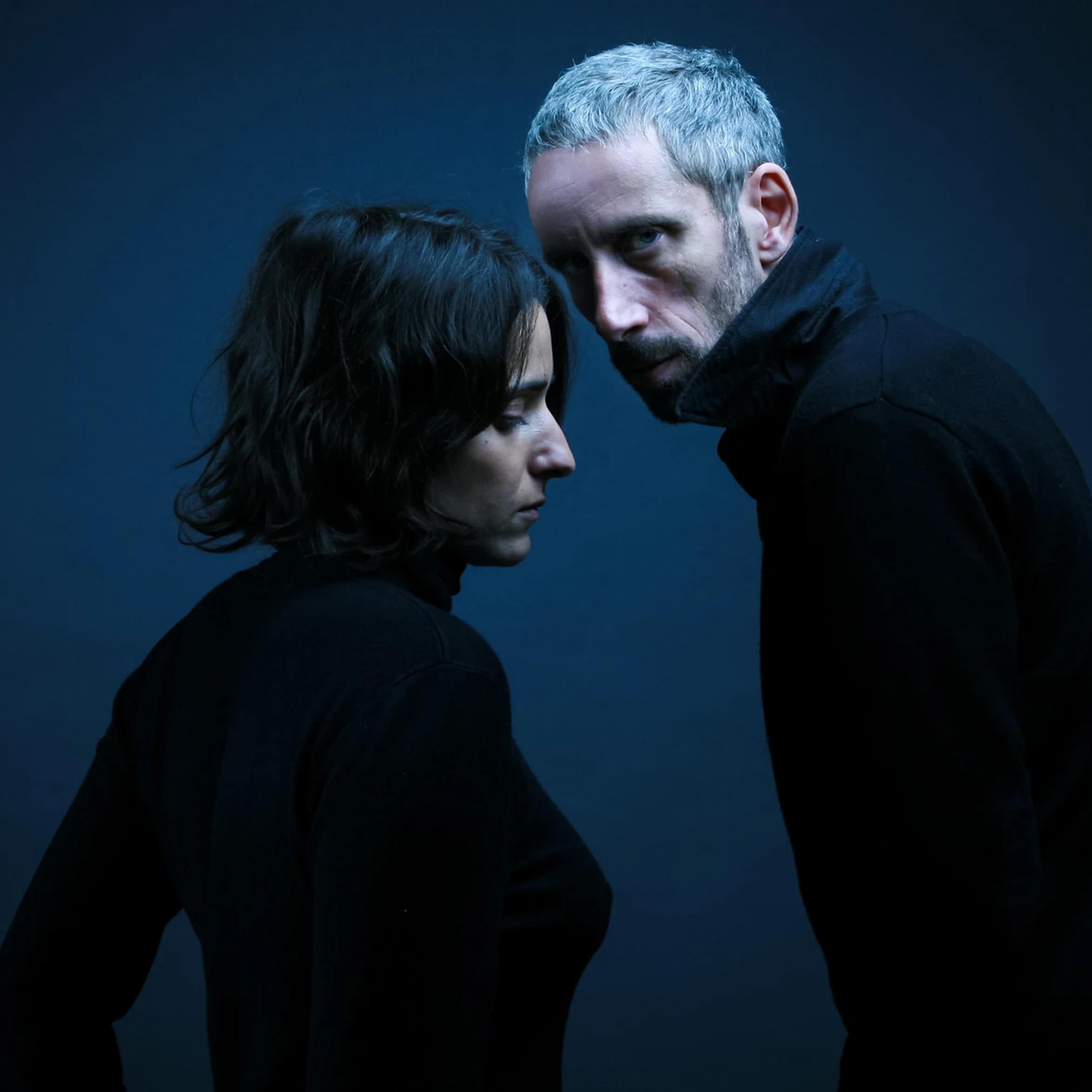Conversation
Magali Daniaux & Cédric Pigot
"A holistic approach seems much more suitable."

Prolific artists Magali Daniaux (b. 1976) and Cédric Pigot (b. 1966) bring to life the vulnerabilities and magic of the living.
Their pieces mix diverse media and combine opposing registers, with a predilection for correspondences between science fiction and documentary, advanced engineering and fantastical tales, heavy materials and fleeting sensations.
They tackle topical issues such as ecology, fossil fuel resource management, economic systems, geo-strategy and politics, urban development and food safety. They have explored ubiquity and sensorial reality in extreme conditions in the Alaskan tundra. Their work was shown in leading institutions in France and in Europe: the Musée du Jeu de Paume in Paris (2014), the Venice Biennial of Architecture (2014), the Palais de Tokyo in Paris (2011), the Qui Vive International Biennial in Moscow/Russia (2010). They were laureates of a Villa Medici hors-les-murs residency, China (2003) and fellows at Akademie Schloss Solitude.
MADELEINE SCHWINGE: Can art foster social change - and what role can artists and their work play in this? Is there room for them to take a leading role?
MAGALI DANIAUX & CEDRIC PIGOT: Ultimately yes, but it seems to us that this is giving a lot of importance to art and artists when in reality very few people are concerned. As artists we can take on crucial contemporary issues, imagine new narratives, propose aesthetic, poetic or conceptual experiences that engage the public in social or political reflections, and on our side this is what we try to do, but it seems to us that it is first and foremost within our own practices, our interactions and our business models that we need to make changes.
MS: In the face of the radical upheavals and crises of our time, can we still hope for a better future? And what impact might "narrative" have on this future's construction process?
MD CP: Your question brings to our mind a memory, an intervention by a post-situ thinker whose name we have forgotten, which we attended a few years ago at Akademie Schloss Solitude in Stuttgart. To this question he had this terse answer: Hope is cheap, better to be disappointed. It felt a bit harsh at first, but It soon became a motto. Hoping for better futures is vapour. Acting around us, at the scale of our community matters a lot. In 2017 we founded UV Éditions, we publish books focused on Offshore finance, Information Theory, Media Critic, Philosophy of the Technics, Anthropology of the Medias, Feminism and queer Theory. France is one of the countries where independent publishers are most numerous, distribution channels are solid and we can count many readers, it is a fertile ground to express and propel ideas.
MS: What might be the premises of a transdisciplinary dialogue (between art, culture and other disciplines) capable of triggering social transformation? In your own work, what expertise or practices could go in the direction of such a transdisciplinarity?
MD CP: Confronting points of view, operating modes, sharing knowledge are crucial and rich, especially between disciplines. Saying this sounds a bit stating the obvious. The truth is that it's exciting for us. It expands our universe. We have worked with an archeologist, a neurocognitive researcher, engineers, architects… It's just fun ! Now if we talk of science, transdisciplinarity is not only worthwhile, it is mandatory. How can we deal with the major problems of our times if we only understand the isolated parts of a complex system? A holistic approach seems much more suitable.
MS: Assuming it is possible to build a better world on the ruins of the old one - what do you think it might look like? What would you wish for a better world?
MD CP: Ruins is a very anthropocentric notion. For us ruins do not exist, there is no ruins, there is only life, a self-making process that grows, excretes, exchanges material and grows, and grows, and grows. A better world will just never exist because it is already perfect. Human activity, greed, extractivism… endanger species but not life.
MS: It's often said that artists (and creative people) have this unique ability to endlessly search for the new, to start from scratch over and over again. When you start a new project, what strategies or rituals do you personally use?
MD CP: Nothing and no one starts from scratch, even Craig Venter who claimed to create a bacteria from scratch was nonsense. On the contrary, we like very much to transform matter, as alchemists. Collages, samplings, cut-up are at the center of our practice and we are huge reformers of our own work, re-modelling it to new expectations. We are field artists, and an important part of our work is dedicated to research, to taking into account the territory in which we operate and its populations. Like anyone, we have our inspirations. Some come from literature, scientific research, technologies, from small details that catch our attention, from observations of the world around us, our feelings, our interrogations.
Front Photo. © Akiko Gharbi